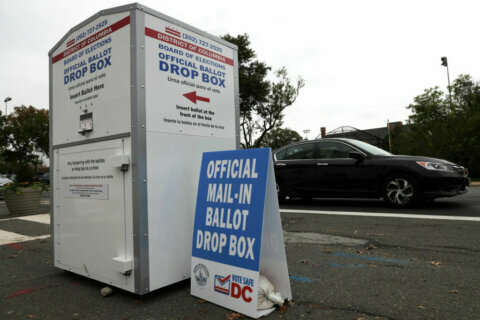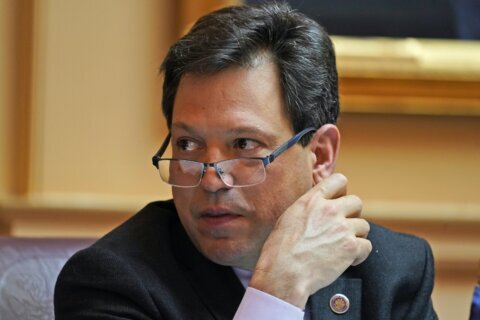With early voting in Virginia’s Nov. 7 election getting underway Friday, many voters will have the issue of abortion on their minds as they cast their ballot.
Since the U.S. Supreme Court reversed Roe v. Wade last year, numerous states have implemented abortion restrictions, and that will likely happen in Virginia, as well, if Republicans take control of both the House of Delegates and the Senate.
The Virginia House of Delegates is currently controlled by the GOP with 50 Republicans, 46 Democrats and four vacancies.
Of the 40 seats in the state Senate, there are 22 Democrats and 18 Republicans.
Every state lawmaker will be on the ballot, meaning the election will determine which party controls the General Assembly.
“There is a chance for us to find common ground here,” Republican Gov. Glenn Youngkin said in an interview with WTOP.
Youngkin supports a ban on most abortions after 15 weeks of pregnancy, with exceptions for rape, incest and when the life of the mother is at stake.
According to Youngkin, there is room for unity with that 15-week cutoff.
“This is a place where I think we can bring people together,” Youngkin said. “We are seeing in poll after poll that coming together around 15 weeks is a place where folks feel like they can land, and I’m encouraged by that.”
Youngkin said that, in passing a 15-week abortion ban, Virginia can “demonstrate that we can do something that the rest of the nation is really struggling with, which is how to come together on a very difficult topic.”
Democratic leaders in Virginia’s Senate have been quick to vote down all pieces of legislation that would put limits on abortion.
State Sen. Jennifer Boysko, a Democrat, told WTOP that she believes the issue will hurt Republicans in the election.
“Each pregnancy and each circumstance is unique to the person, and people need to be able to make medical decisions with their provider,” Boysko said. “This is a fundamental issue for so many people.”
“They do not want the governor messing with our most personal private decisions,” Boysko added.
The November election will be the first general election in Virginia under the newly-redrawn district boundaries from the end of 2021.
“All the district lines got reshuffled,” said Alex Keena, a political science professor at Virginia Commonwealth University. “Many incumbents got placed into entirely new districts, and many new districts were created that didn’t contain any incumbents.”
According to Keena, the General Assembly “will look completely different” after November.
“For all these reasons, it’s really hard to predict how the cards will fall,” Keena said.








